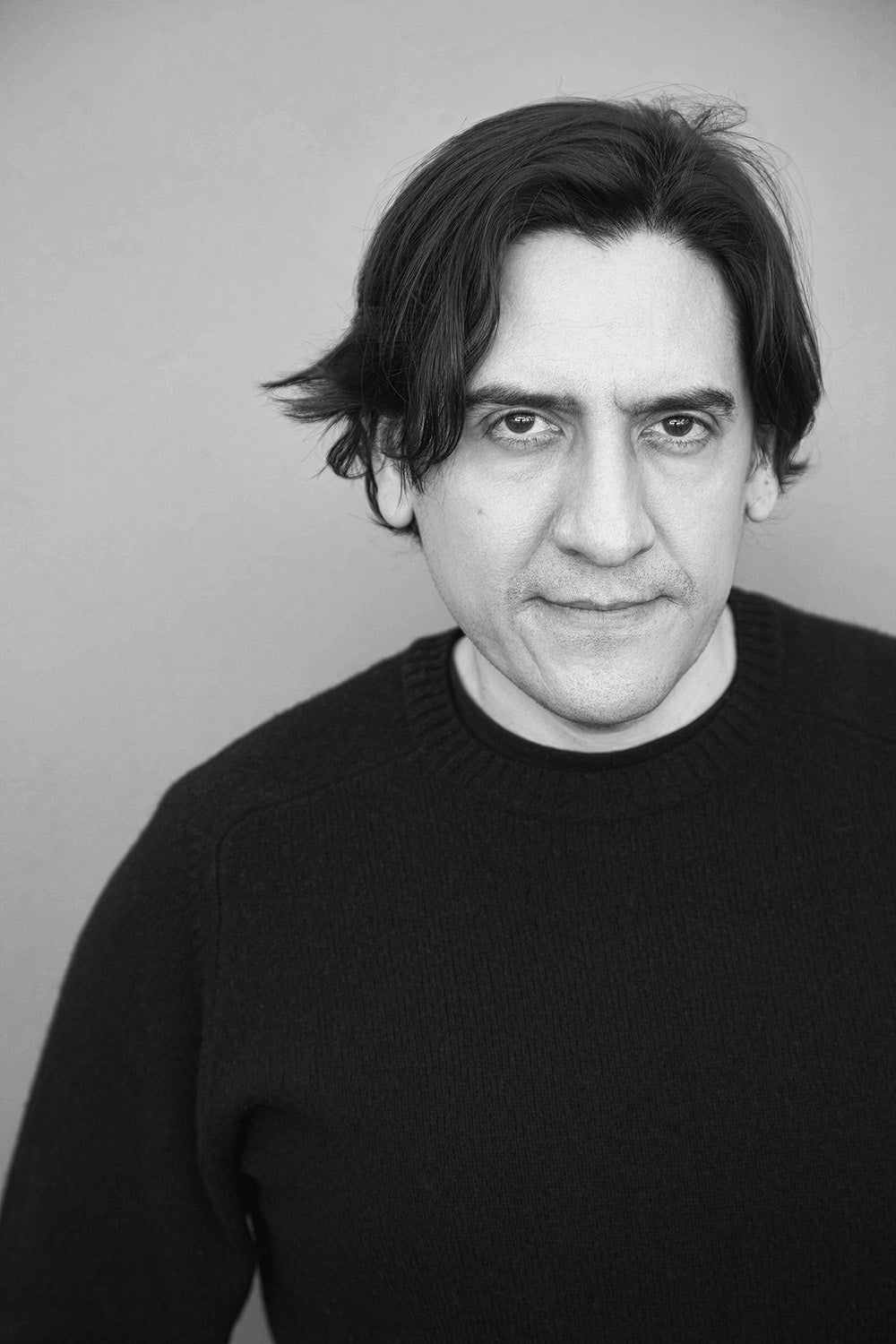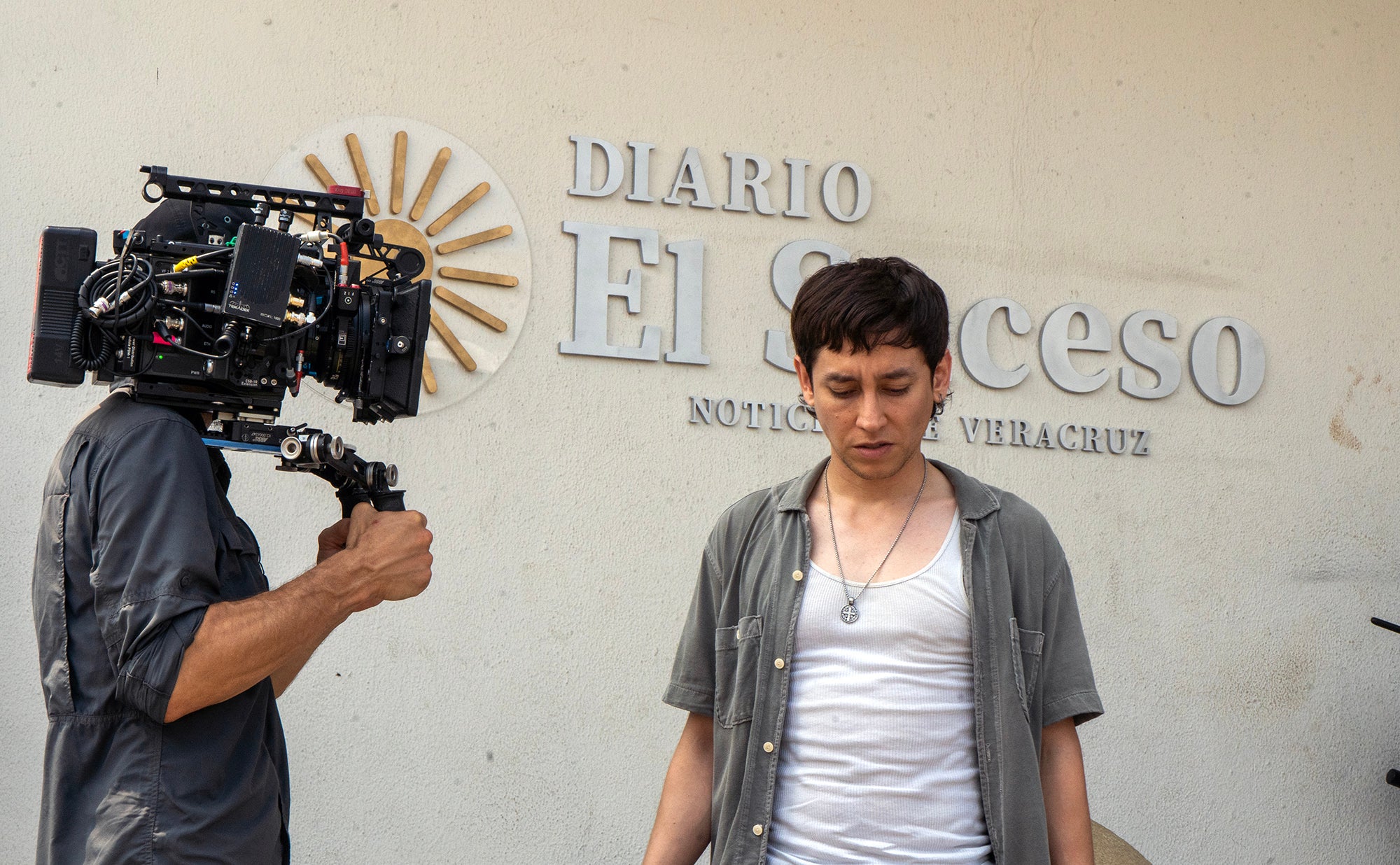The murders of investigative journalist Regina Martínez and photojournalist Rubén Espinosa, in 2012 and 2015 respectively, shocked the journalism community in Mexico and became emblematic of violence against the press and the extreme risk of practicing the profession in the country.

Mexican filmmaker J. Xavier Velasco. (Photo: Courtesy)
Several years later, both crimes —which remain unpunished— served as inspiration for the film "Cocodrilos," the debut feature by director J. Xavier Velasco, who, like Martínez and Espinosa, is originally from the state of Veracruz.
The fictional film is a thriller that addresses the cost of seeking the truth in a country where collusion between authorities and organized crime is the main threat to people's right to be informed.
After its world premiere at the Chicago Latino Film Festival in April of this year, "Cocodrilos" began a tour of various festivals in Mexico. It is expected to be released on digital platforms in the first half of 2026, according to its director.
In conversation with LatAm Journalism Review (LJR), Velasco explains that his film, in addition to honoring the memory of Martínez and Espinosa, is a way to make visible violence against the press, which risks being normalized in Mexico. He also details his efforts to truthfully portray the risks of journalism and highlights the importance of defending press freedom in the face of threats, corruption and impunity.
The interview has been edited for clarity and length.
LJR: Why address the issue of violence against journalists in Mexico in a film?
J. Xavier Velasco (JXV): The idea came from the explosion of violence triggered by [former President Felipe] Calderón's so-called "war on drugs." I'm originally from Xalapa, Veracruz, a university city, full of culture, very peaceful. Suddenly, seeing the military in the streets, hearing about shootings, extortion, and violence against citizens was something that moved me deeply.
That was in 2011 and 2012, I think. And in 2012, they murdered journalist Regina Martínez, who worked in Veracruz as a correspondent for Proceso magazine. What shocked me deeply was the way the crime was handled, they dismissed it as a crime of passion. And then it went unpunished. And then came the murder of photojournalist Rubén Espinosa, who also worked in Xalapa.
Although I didn't have a close relationship with either of them, I was deeply shocked by the violence that was taking place. They're just two names, but Veracruz, for a time, had the highest number of journalists murdered, allegedly for their work. It was a systematic issue of violence and attacks against journalists. When Rubén's case happened, that's when I said, "I'm really interested in talking about this."
LJR: Do you remember how people in Veracruz reacted to the murders of Regina Martínez and Rubén Espinosa?
JXV: There was a problem of disregarding the press that was happening in those years, and obviously [Regina Martínez's case] wasn't the only one. But Regina's case was definitely the most well-known at the time, the most scandalous because of who Regina was: a highly respected investigative journalist whose publications were very important because she investigated very serious matters. So, it did shake things up; it was quite widespread news.
We continued to hear about these attacks afterward, and when Rubén's case happened, it was toward the end of that terrible six-year term. And the way it happened was absolutely terrifying. Today [July 31] marks 10 years of a case that remains unpunished, a case that was made to close, and no one ever knew anything about it.
LJR: Have you been preparing the film since then?
JXV: It wasn't until much later, around 2019, that I actually sat down to write. My sister, Magali Velasco, and I wrote the plot, and then we each wrote our own piece. She's a novelist, so she wrote the novel [“Cocodrilos”] that came out this year. And I wrote the script.
It was an interesting creative exercise because, let's say, I had this idea and began to develop it. Then I met with her and we developed a plot, and from that plot, she wrote the novel, and I wrote the screenplay. It’s not like one is an adaptation of the other; it's like two versions running parallel.
LJR: You say you wanted to address the issue of violence in Veracruz, but why do so specifically from the perspective of journalists? Do you have any personal connection to journalism?
JXV: It's an interesting question that I ask myself. And the most honest answer I've come up with is that it's simply a manifestation of empathy, of concern for freedom of expression, for freedom of the press. The subjugation of power and the manipulation of information is something that has always interested me.
In my view, journalism is a very noble endeavor, communicating the facts. I've always been interested in investigative journalism, in how there are people who dig into completely terrifying facts. If these people didn't exist, the stories would just stay there, and they're very important.
LJR: It seems like the murders of journalists in Mexico are having less and less impact on people. How do you hope this film will contribute to greater conversation about the issue?
JXV: You touch on something that interests me greatly, which is this danger of normalizing violence. For me, it's a dehumanizing, terrible issue. I'm also very interested in this film addressing this issue of not normalizing violence.

Velasco said he was inspired by the murders of journalists Regina Martínez and Rubén Espinosa for his debut feature, "Cocodrilos." (Photo: Courtesy)
It's important to continue talking about these issues to remind the audience that these are terrible things that shouldn't be happening, to talk about the issue, to not forget it, to not leave it as just another story in the newspaper. The loss of journalists' lives is deplorable, but it's just a symptom. There's a larger illness, and that's something that can't be normalized.
"Cocodrilos" tells the story of a photojournalist and a journalist who become involved in unearthing a terrible event, and how in Mexico, bringing this truth to light is punished tremendously, because in Mexico there is collusion between the spheres of power and drug trafficking. And there is tremendous impunity, where justice belongs to those who pay, and a profession like journalism, which should be an integral part of keeping the population informed so they can take action, suddenly is restrained.
LJR: How much of the cases of Regina Martínez and Rubén Espinosa did you portray in “Cocodrilos”?
JXV: I didn't base it exactly on their cases. I'd say it was an inspiration. The character of the photojournalist, who's a young man, pays homage to Rubén. And the character of the journalist is a homage to Regina. The only coincidence is that she's murdered, but beyond that, there aren't many elements of this case, or to Rubén's case either.
However, since it takes place in Veracruz, the film takes into account some issues that did occur, such as the discovery of a mass grave in Veracruz, in a neighborhood called Lomas de Santa Fe. And also the detail that someone anonymously handed a map of this mass grave to a searching mother. That's an element I did take into account.
I was very interested in approaching them from a perspective of great respect. In my mind, it was also a way to pay tribute, not only to them, but to all journalists who do such difficult work.
LJR: Did you speak with journalists who survived attacks during the research process for the film?
JXV: I had interviews with journalists and photojournalists in Veracruz. They've all had experiences that fortunately didn't escalate. For example, Iván Sánchez, from the Port of Veracruz, told me how he was very young at the time, but he did experience attacks.
There's a book that was very important for this, called "Romper el Silencio," which compiles several narratives from different journalists who have suffered harassment and attacks from organized crime. It vividly recounts these types of attacks, and it helped me a lot.
LJR: Is that the picture of how violence is exercised against journalists that is in “Cocodrilos”?
JXV: Exactly. It's a work of fiction, so I wasn't so interested in anchoring myself to reality in the narrative sense of the story, but I was interested in it not being something made-up, that it had a kind of coherence and that it was credible.
There was a concern about being as faithful as possible and approaching the subject matter with great care. I also didn't want it to be a matter of misery porn, an exploitation of misfortune. I sought to be very subtle with the theme of violence and focus more on the metaphorical aspect. Verisimilitude was also something I was very interested in to create an immersive narrative.
LJR: Which films about journalism or journalists have left their mark on you?
JXV: There's one from Hollywood called "Spotlight," which I really liked. "All the President's Men" was one of my favorites. Besides the fact that it's obviously a classic film, I really like the dynamics of the characters.
There's a film about Enrique Metinides [an icon of crime scene photography in Mexico], it's a documentary by Trisha Ziff, "El Hombre que Vio Desmasiado." And a film just came out on Netflix called "Estado de Silencio," a documentary.
LJR: “Spotlight” and “All the President's Men” speak to journalism's ability to scrutinize and shake powerful institutions. Do you believe in this power of journalism?
JXV: I think so, although we are living in very strange times in which misinformation is the order of the day, where it is increasingly difficult to refute lies because it takes twice the effort to refute a lie than to tell it. When you are refuting a lie, five other lies have already come out and people get tangled in the web.
There's a loss of trust in certain news sources, and the greatest danger is when those in power take control of the narrative. When there's a financial stake, as in certain corporate media outlets, that's where narrative control comes in.
I believe it is extremely important to defend this right of the press, and to defend the right to know the truth. That way, we can have the tools to change reality.